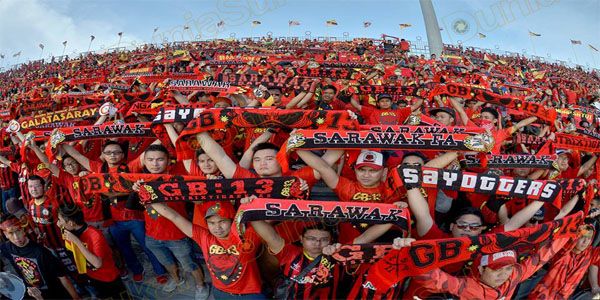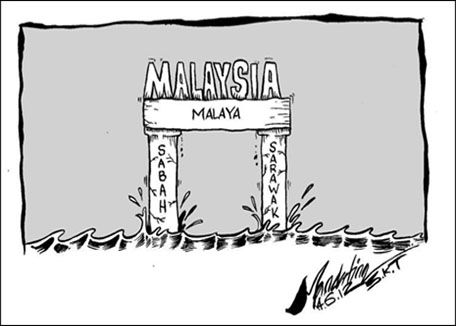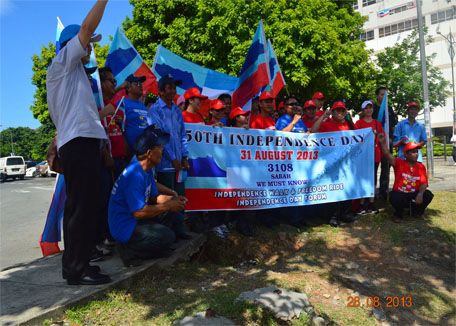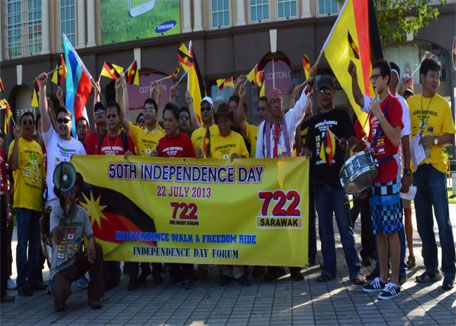Sarawak's outspoken Land Development Minister, Tan Sri Dr James Masing, has accused young federal leaders, particularly those from Umno, of causing friction between Putrajaya and the state government.
He said their lack of understanding of the Malaysia Agreement and how the federation was formed, makes them think that they are the masters and leaders from Sarawak and Sabah should be subservient to them.
Without wanting to name names, Masing, a senior minister in Chief Minister Tan Sri Abdul Taib Mahmud's Cabinet, said in state capital Kuching that these young Umno leaders should be humble enough “to pick up the history book and relearn the history of Malaysia”.
“They should be reminded of the understanding for the formation of Malaysia, the agreements that were signed, the position of Sarawak and Sabah in the federation and the special rights and autonomy we have.
“When they talk to us, they make themselves feel as if they are superior while we in Sarawak, are their coolies.
“Personally, I get irritated with those leaders who do not treat us from Sarawak as equal partners in the administration of this federation,” he said yesterday.
Masing also said he gets upset with Umno leaders asking him questions like: “Oh! When did you leave Malaysia?” when in Kuala Lumpur or Putrajaya to attend meetings.
“I told them I never left Malaysia. I only just flew in from Kuching. It maybe small talk but it showed their thinking.
“We in Sarawak and Sabah seemed to be like an appendix to West Malaysia."
“There are only four signatories to the formation of Malaysia – Malaya, representing the 11 Straits Settlements and Malay states, Singapore, Sarawak and Sabah (then known as British North Borneo).
“Not 11, 12 or 15 signatories. Only four. Sarawak and Sabah are regional entities of their own and we should be regarded and treated like one," he pointed out.
Masing said unless and until these young leaders understand all these historical facts and start respecting the agreement, there will always be friction between Putrajaya and the state particularly when federal policies do not take into account Sarawak and Sabah's special position.
Issues that are currently straining state-federal ties, Masing said, is the Home Ministry's decision to ban the use of the word "Allah" in Christian publications, a decision which the Court of Appeal upheld in a controversial ruling last month.
The decision had fanned the anger of the 1.6 million Christians in East Malaysia against Putrajaya as it was seen by people in the two states as breaching the very first point of the terms Sabah and Sarawak drew up when Malaysia was formed.
“How could they then say the ruling is applicable only in West Malaysia and not in East Malaysia? How could we have two sets of rule for one country?
“Then you get an Umno minister saying that if East Malaysians were to come to the peninsula, they have to respect the laws of the peninsula as West Malaysians are not used to Christians using Allah,” he said in reference to Tourism Minister Datuk Seri Nazri Aziz who recently warned East Malaysian Christians that they cannot use the word in Peninsular Malaysia.
“That's arrogance."
Sarawak's autonomy over immigration, which places curbs and restrictions on people from the peninsula from coming into the state freely and to work, is another matter that has also been continually questioned by members of parliament.
Masing said BN leaders, whether they are from the peninsula, Sabah or Sarawak, “must discuss issues intelligently, with great sensitivity and as equal partners and not as boss and subordinate”.
“Arrogance must not come into the picture. There must be a spirit of understanding.
“If our federal leaders are not mindful of the Malaysian Agreement, then the fears voiced by one of our Malaysia founding fathers, Tun Jugah Barieng, might ring true,” Masing said.
Jugah, the paramount chief of the Ibans, voiced loudly his scepticism and doubts of sincerity on Sarawak's long-term position in Malaysia when he famously said: “Anang Malaysia sebaka tebu, manis di pohon, tawal dihujung” (Malaysia should not be like the sugar cane, sweet at the head and getting less sweet towards the end).
“That would be most unfortunate,” he added.
Masing said his criticism was not to demand a review of the Malaysia Agreement but a demand that federal leaders be reminded of the terms and agreements in the formation of Malaysia and start respecting them.
The friction, he noted, could jeopadise the chances of the Barisan Nasional (BN) in the coming state election. The mandate of the Sarawak government ends in 2016.
“I hope the federal leaders take this as a constructive criticism as I want the BN to administer this nation for years to come.”
Parliament last Wednesday rejected an emergency motion tabled by Darell Leiking (PKR - Penampang) for a special committee to review the 18 and 20-point agreements.
Deputy speaker Ismail Mohamed said although the motion is definite and of public interest, he still rejected it on the grounds it was not urgent. - November 17, 2013.






















